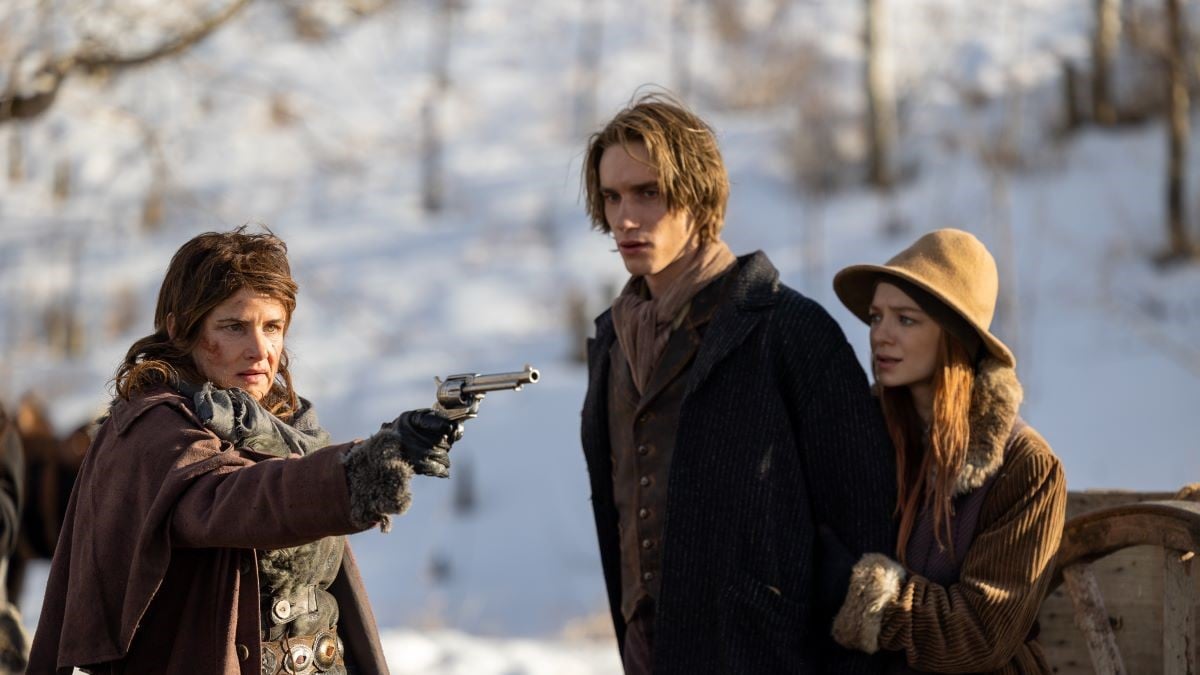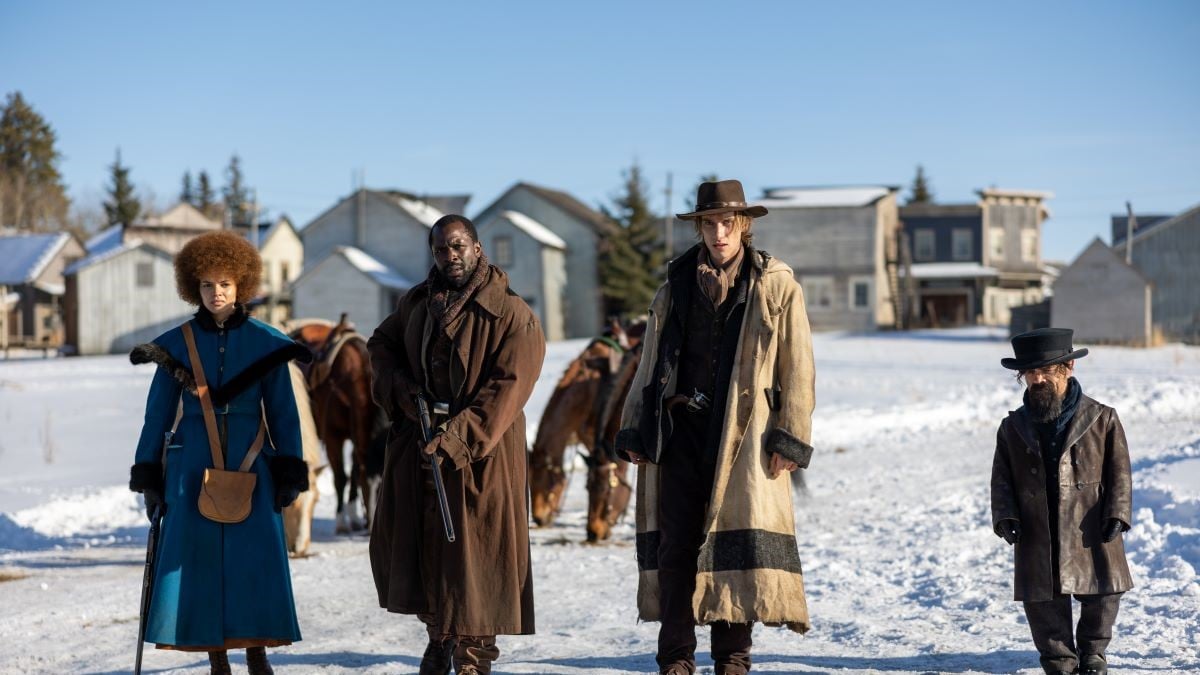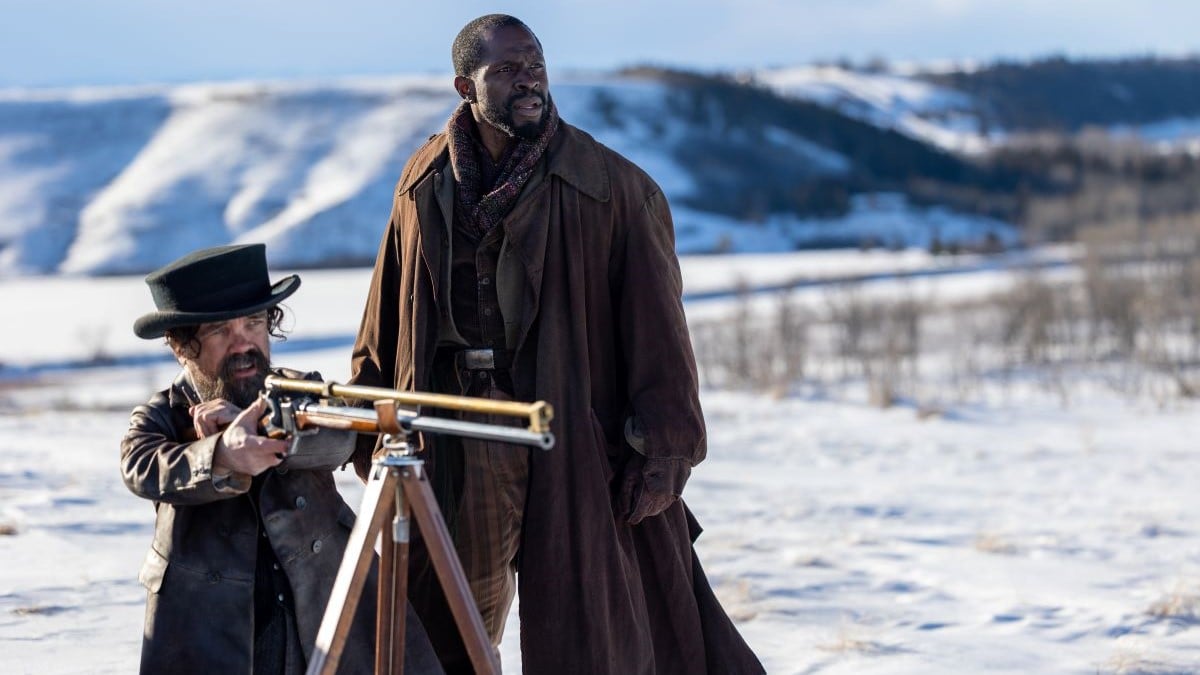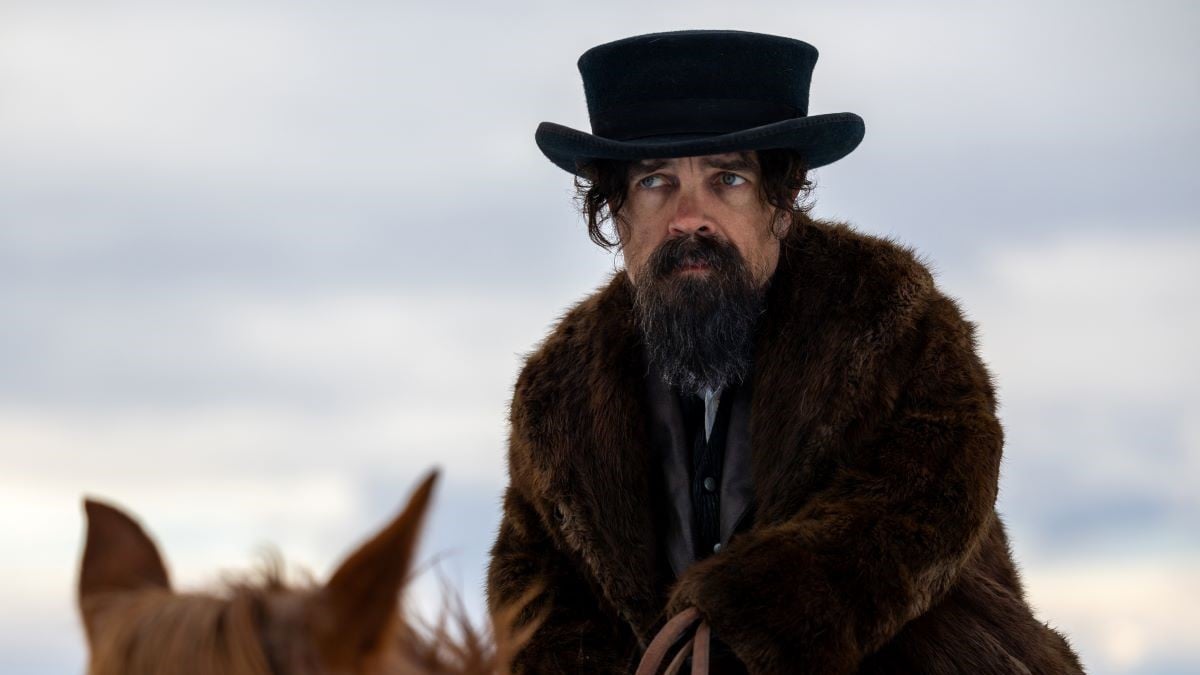Ten years ago, the ineffable Peter Dinklage was first linked with a Western flick known as The Thicket, based on the 2013 novel of the same name by Joe R. Lansdale. A passion project for the actor, The Thicket finally entered production in February 2020 before the COVID-19 pandemic reared its cumbersome head. But creative willpower won out, and The Thicket will be seeing the light of day pretty soon.
Streaming platform Tubi is distributing the film in North America, but don’t let your preconceived ideas about that library of glut fool you. Indeed, not even a thicket of growing pains can muffle the triumphant pop of The Thicket‘s engagingly subversive personality, which navigates its singular genre stylings and emotional core with such honesty that it’s inspiring to behold.
The film stars Levon Hawke (Maya Hawke’s younger brother, who recently shored up the Blink Twice cast) as Jack Parker, a young man in the Old West who’s having a tough shake of things lately; his parents fell victim to smallpox, his grandfather got murdered, and his sister Lula (Esmé Creed-Miles) has been kidnapped by a famed criminal known as Cut Throat Bill (Juliette Lewis). Desperate to get his sister back, Jack entreats bounty hunter Reginald Jones (Dinklage) to track down Bill and rescue Lula. Reginald relents after a $10,000 reward on Bill’s head catches his attention, and the journey commences in more ways than one, a handful of ragtag companions joining Jack and Reginald as the trials and stakes continue to mount.

The Thicket’s strength lies not in a zeroed-in approach to material — the film’s inability to trim all of its fat in its 108-minute runtime prevents it from reaching the heights it could have — but in the way carries itself alongside its self-awareness of and engagement with its themes. This strange amalgam of traits may be more interesting than its actual story, but regardless of how that strikes you, The Thicket is an undeniably effective piece of art.
This is due largely to Dinklage and Lewis. The Game of Thrones alum expertly embeds his passion for this film in his performance, embodying Reginald with an obscenely watchable cool-headedness that slowly gives way to buried compassion and a desire to belong, all of it balanced by an electric killer instinct that permeates every pixel (until it doesn’t, and when that weight is lifted, it’s a whole new kind of payoff).
Lewis, meanwhile, is Dinklage’s perfect counterweight as Cut Throat Bill, a gang leader whose great distance from their own humanity is only matched by the deep panic their uncanny presence induces. The Academy Award nominee fascinates as the villain; even when you have a pretty firm line on how things are going to go in a scene, the specific way she drones, drifts, and smacks her lips in a sort of antagonistic perpetual motion, unearths a dormant chaos that gels with the film’s overarching identity perfectly. Ditto the worlds of pain visible in Bill’s eyes.
A shoutout must also be given to Andrew Schulz as Hector, a sleazy pimp who pops up about halfway through the film solely to antagonize poor Jack. We spend just a few minutes with him, but his punchable face and relentless sarcasm stick in the mind long after the credits roll.

Now, that memorable quality is testament to Schulz’s work, and also to the film’s lack of a prominent thrust; ideally, we’d be too busy drinking in the nuances of the narrative to remember this jackass as well as we can, no matter how entertaining he was, but The Thicket doesn’t prop up enough of its very visible, very fertile ground to make that happen.
But that visibly fertile creative ground can’t be ignored, either. The Thicket deploys its Western backdrop — one that fundamentally communicates a lack of judicial consequence, and is therefore interested in one’s raw capacity for good and evil — as a lens to examine human nature, and how we relate to one another. But The Thicket could have examined this human organism in greater detail. Lula, for instance, seemingly roots her womanhood (i.e. her identity) in the traits of softness and conventional beauty, but when she leaves those traits behind for her own survival, it poses the question of who she’s going to become without them. This is great, but the time we go on to spend with Lula doesn’t take advantage of this promising narrative precedence beyond its arrival, like a gleaming locomotive left idling on the tracks.
Then you have the likes of Macon Blair (Oppenheimer), Leslie Grace (In The Heights) and Gbenga Akinnagbe (The Wire) play Malachi Deasy, Jimmy Sue, and Eustace Hollow, respectively, all of whom join Jack and Reginald on their journey. This spectacular cast of diverse ages, bodies, backgrounds, and life experiences is key to offering up implications of nuance to the humanity-centric theme, but their screentime is tragically lackluster in terms of delivering anything tangible. It’s another example of The Thicket only really committing to bits and pieces of its thematic potential, while merely suggesting the rest (the bits and pieces in question are Reginald, Bill, and Jack).

Elsewhere, The Thicket also plays host to a genuinely gorgeous score, under-utilized as it is, and the opening scene in particular firmly and dreamily stamps composer Ray Suen’s impact. As for the editing and the combat scenes, they could have used a bit more time in the oven, with an extra special nod to the combat. There’s a miniscule instance during the fist fight between Jack and Hector that suggests how much mileage the film could have gotten out of more tenderized choreography; The Thicket‘s collection of knuckle exchanges might have even offered the film even more personality, in the way that Dinklage and Lewis do.
At the end of the day, The Thicket is such an honest, rugged, and exceedingly competent piece of filmmaking, that it’s hard to find any substantial fault with it. It suffers by its potential; most of its weaknesses aren’t actually weaknesses so much as they’re unrealized strengths. That still leaves something to be desired, sure, but The Thicket understands that an audience can still get viewing mileage out of an unrealized strength, and that tampering too much with those strengths can turn them into counterproductive weaknesses that offer no such mileage. In this way, it’s a sensational exercise in trusting your audience.
And then you have the matter of The Thicket‘s strengths that actually are realized, be it Dinklage, Lewis, Schulz, the film’s pronounced personality, or its refreshing approach to the Western genre. Upon peeping those, it’s beyond clear that The Thicket is an excellent addition to the 2024 indie film archive, and that we should all keep an ear out for the next time Dinklage identifies something as a passion project.
The Thicket hits theaters on Sept. 6.











Published: Aug 26, 2024 08:00 am